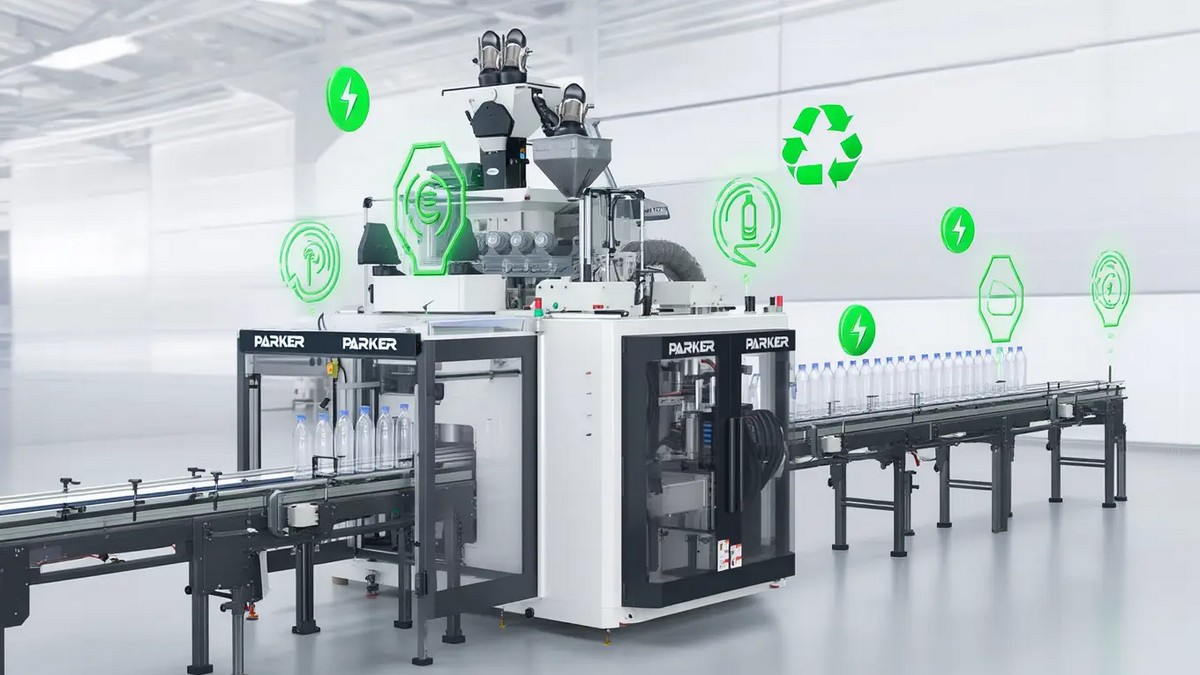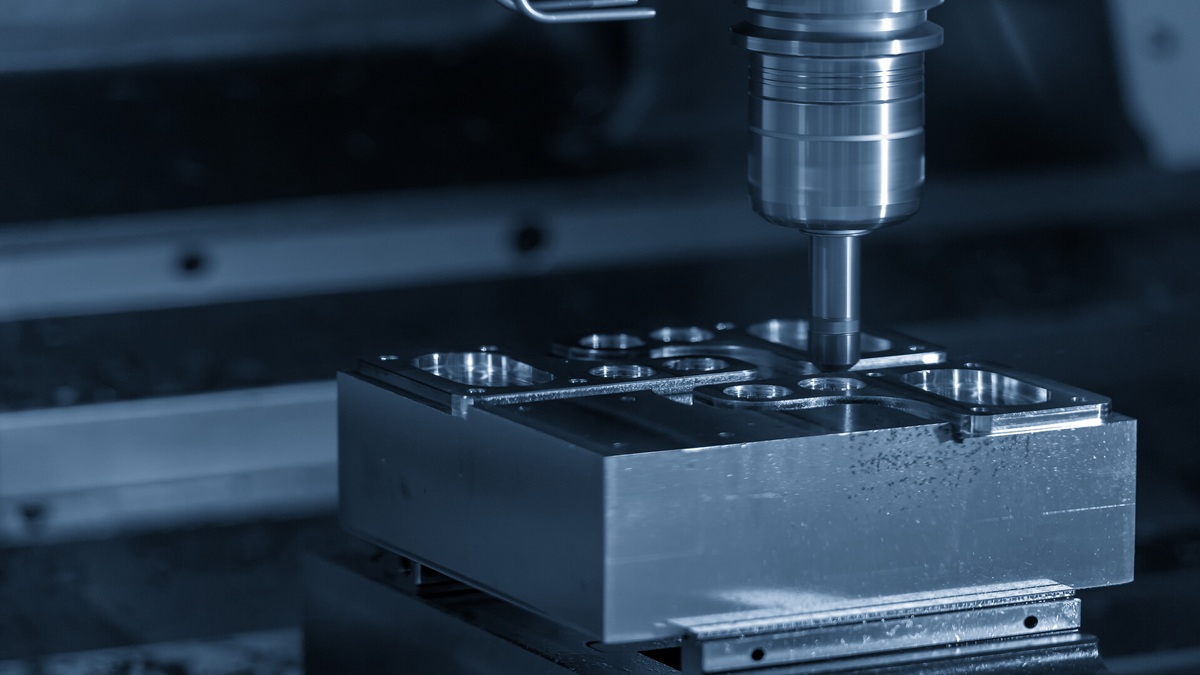As the second-largest global exporter of screws and nuts, the export value of Taiwan's screw and nut industry reached 4.3 billion US dollars in 2017. There are more than 700 factories in Kaohsiung, Taiwan, making it one of the main manufacturing areas of screws and nuts in the world.
The development of Taiwan’s screw and nut industry has a history of more than 60 years. The entire industrial chain includes a flexible supply of upstream, midstream, and downstream suppliers within a 30-kilometer area that has created the legend of Taiwan's screw and nut industry. Exports account for 70% of Taiwan's screw and nut industry’s overall output value. However, with the year-by-year decline of the labor force, Taiwan's screw and nut industry is facing challenges. Smart production lines and high-value products are important to bringing the industry to its next stage.
The export status of Taiwan screws and nuts
From January to May 2021, the output value of screws and nuts increased by more than 20%. In 2017, benefiting from the recovery of trade activities and the increase in steel prices, the output value was 126.8 billion yuan. In 2018 export orders continued to flourish, and as domestic manufacturers actively developed high value screw products, production value grew to 146.3 billion yuan. In 2019 and 2020, with the U.S.-China trade dispute and the COVID-19 epidemic, production saw a decline. In 2021, with the increase in the vaccination rate, global economic activities gradually recovered, and the sharp rise in steel prices pushed up the production momentum of Taiwan's screws and nuts, for an annual increase of 21.5%.
Taiwan's screw and nut industry is export-oriented, and the United States is the main export market for Taiwan. Taiwan’s exports to the US in 2020 were 3.97 billion US dollars. Taiwan has the largest market share of screws and nuts in the United States. In the EU market, Taiwan is the second largest exporter, supplying 21.1% of the EU market.
Application of screws and nuts
Screws and nuts are just a small part of a product, but they are an indispensable component in most industries, and closely affect our daily lives.
Taking an airplane as an example, about 1.8 million screws and nuts are needed. Taking a car as an example, more than 2,000 fasteners are required. Taking a bicycle as an example, about 40 to 50 screws are required. Even for small items like watches or clocks, control of the rotation of the hands relies on screws. The frames of eyeglasses are assembled with screws, wood screws are used for furniture, plastic water-proof screws are used in the toilet tank, industrial screws, rail screws, power screws, construction screws, etc. are used almost everywhere you look. The types of screws are ever-changing, and new applications are continuously being made in various industries. The quality of screws will also affect the safety of vehicles or the precision of machine processing.
Screw and nut industry- large scale and fast production
There are more than 700 screw factories in Kaohsiung, Taiwan, and it is the most screw and nut intensive industrial area in the world. It not only drives the economic development of Kaohsiung but has also led to the area being given the title of Taiwan's "Screw Kingdom". In 2017, it created exports value at up to 4.3 billion US dollars, and export volume approached 1.6 million tons.
The Taiwan screw and nut industry has excellent conditions for the production of fasteners, including efficient supply chains closely linking each stage of the fastener manufacturing process, from screw forming, heat treatment, electroplating, and packaging, to transportation and export. Bringing together the well-equipped factories of Taiwan's screw and nut manufacturers, the flexible scheduling capabilities of surrounding suppliers, the experienced masters in the factory, and the traders and agents who actively cultivate the global market, Taiwan has become an important global fastener producing center.
Taiwan's screw and nut industry started exporting in the early years, and developed from that point on, to expand Taiwan's fastener industry to the world.
With the types of screws ever-changing, customers often need to visit different countries if they want to buy specific items. But in this Taiwan screw and nut industry cluster, where more than 700 manufacturers gather, customers can usually buy all the products they need within a 20-kilometer area. Taiwan's screw and nut industry is high-quality, and because of its large scale, is highly efficient and flexible.
The development of Taiwan’s screw industry-cooperation and mutual benefit strategy
The development of Taiwan's screw industry began in the 1940s, mainly to supply domestic demand. Since the war between the United States and Vietnam, the US military has designated Taiwan as the supply center for screws and nuts. This laid a foundation for the development of Taiwan's export screw industry. In 1981, Taiwan's screw industry entered a new era. With the complete supply chain of the screw and nut industry centered in a small area, the government and the industry coordinated labor and production to win many orders for export. High-quality automatic production machines for screws and nuts have greatly reduced costs, making Taiwanese screws more affordable and high-quality.
With the development of the screw industry, the number of factories and employees has increased year by year, especially in Gangshan, Kaohsiung, Taiwan. In the 1960s, individual manufacturers cooperated to develop the screw industry. Each factory had its specialty, and the production mode was developed according to each need. Manufacturers not only exchanged information and technology with each other but also formed mutually beneficial tacit understandings and consensus in the screw industry. This solid industrial foundation led to the screws and nuts produced in Taiwan being recognized by international customers.
Product Segmentation - Developing New Markets:
The glorious history of the screw industry has continued for nearly 60 years. But the general environment has been changing, with production in developing countries such as China beginning to take off. Low land and labor costs have attracted many large factories to set up factories in other overseas countries. Taiwan's screw industry has lost many orders, and Taiwan's screw industry is no longer thriving like it was in the past, which has led to a crisis of survival for many small factories. One of the threats to the screw and nut industry is China's crowding out effect. To face China's price-cutting competition, Taiwan is transitioning to the development of high value-added fastener products such as automotive and aerospace fasteners. This differentiation of products will help screw and nut production in Taiwan continue to develop.
Many manufacturers in Taiwan have successfully transformed, and some manufacturers have turned their focus to the development of automotive fasteners, entering the supply chain of well-known automotive brands, and becoming some of the world's top ten automotive fastener manufacturers. There are also manufacturers committed to the research and development and production of medical screws, successfully entering the artificial tooth root market, and they have achieved excellent results in the manufacture of human body fasteners.
Because Taiwan's screw and nut industry mainly exports to the European and American markets, the interaction with customers in these advanced countries has led to manufacturers gradually shifting from mass production and OEM to more highly mature technologies. Manufacturers are able to meet the product challenges and logistical pathways required by international automakers and aircraft manufacturers. The development of aerospace-grade fasteners has led to excellent opportunities for the transformation and upgrading of Taiwan's fastener industry. By adopting digitization, intelligence and automation, there is still great room for upgrading in the fastener industry.
The transformation and upgrading of the screw industry, the establishment of a local service network
To meet the demands of a global market, we must develop a local service system to serve the global customer base more efficiently. Since Southeast Asian countries do not manufacture any of their own fastener production equipment, most of them purchase second-hand machines from China, Japan, and Taiwan for production. Taiwanese fastener manufacturers have excellent and mature equipment, and using this equipment to enter the new south, they will have endless potential for future business opportunities.
To assist Taiwan's screw and nut manufacturers to transform and upgrade, and to resist the impact of China's low-priced products, the Taiwan Ministry of Economic Affairs signed a "screw and nut industry NICE upgrade and transformation coaching program". Ten screw and nut manufacturers began working together focusing on intelligent equipment, competent labor, eco-friendly processes and four other strategy areas. Starting from December 2016, their goal was to invest more than 4 billion yuan to promote the industry and increase sales by more than 30 billion yuan within five years.
To further develop the screw and nut industries’ professional division of labor and resource integration capabilities, the Taiwan government and legal entities poured a lot of resources into the industry. It is hoped that through education and research, traditional industrial chain capabilities will be enhanced, and innovative production methods will be developed to create value-added products. Taiwan's fastener manufacturers are mostly small and medium-sized enterprises, and their R&D and innovation capabilities are limited to only a few manufacturers. Facing the severe challenges of the overall international economic situation, if they do not continually upgrade and transform, their original advantages may gradually be lost. By continuing to strengthen research and development, with a focus on core technologies and knowledge, existing production capacity can be improved and new products can be developed to help Taiwan’s screw and nut industry stand firm facing the world challenges.









.jpg)
.jpg)
.jpg)


.jpg)